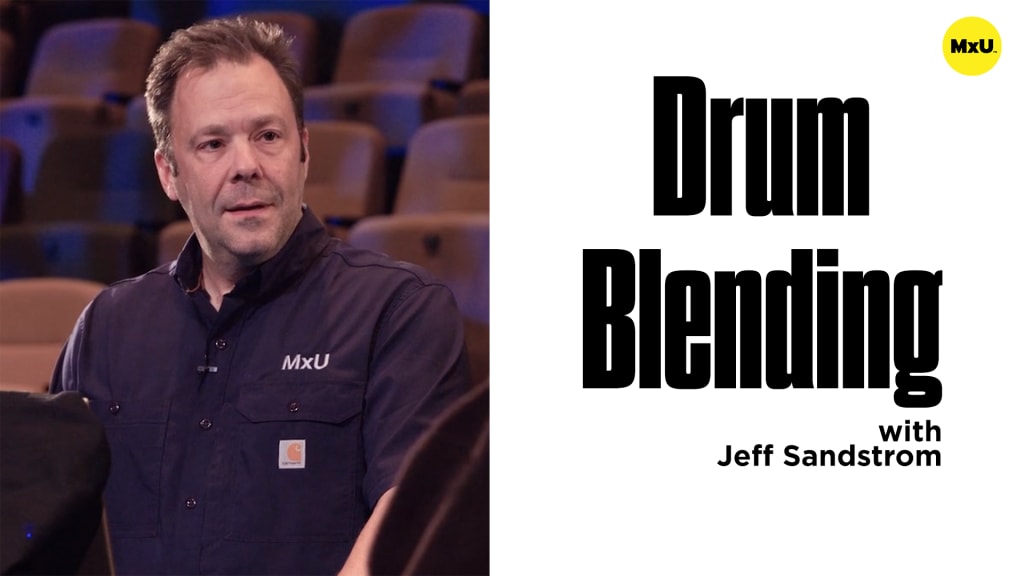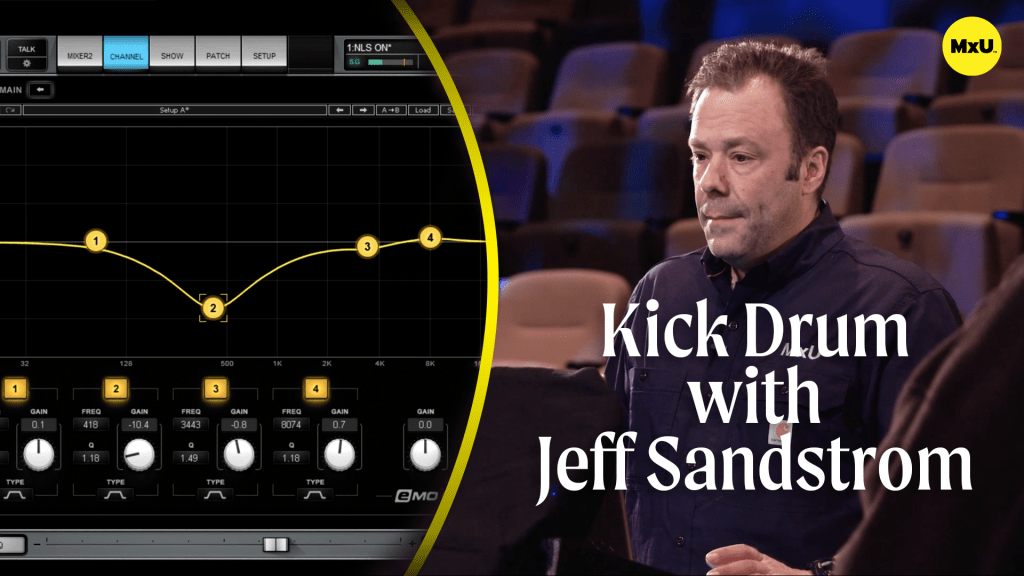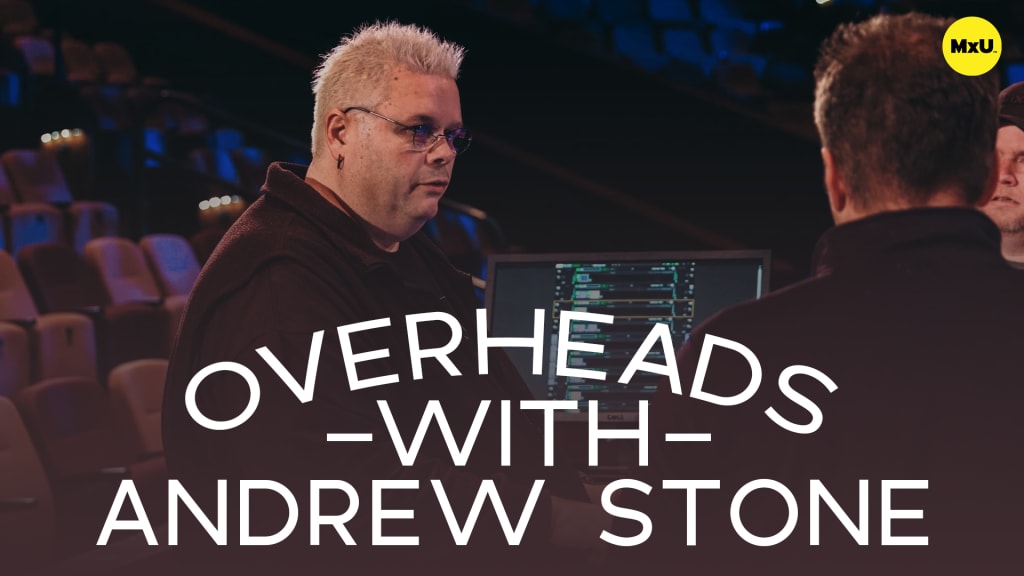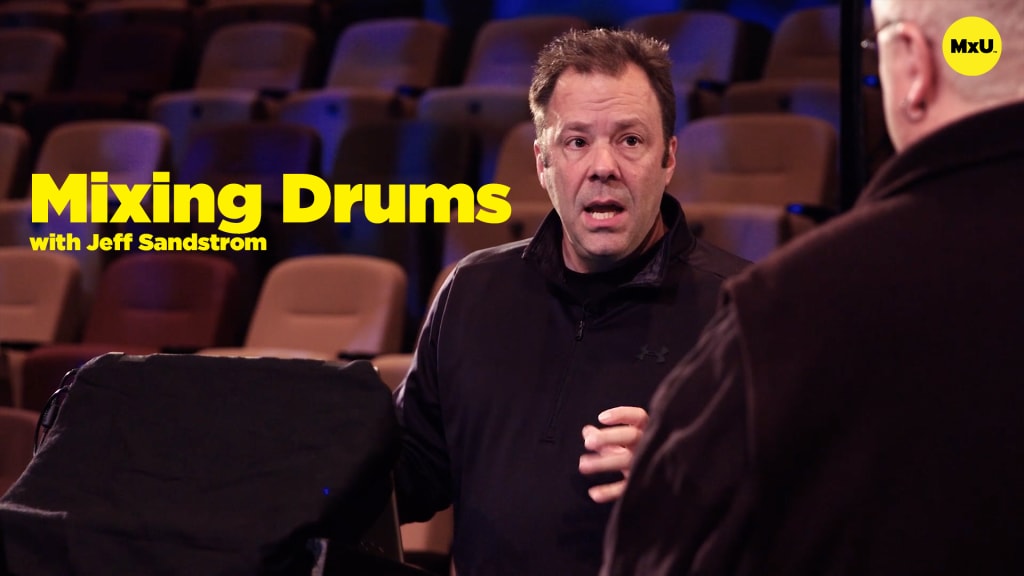Overheads with Jeff Sandstrom
No actions available
Explore the sophisticated approach to mixing overheads in a drum kit, with Jeff Sandstrom. He walks through capturing the entire kit, not just cymbals. This method requires precise microphone placement. It also involves a series of audio processing techniques that are aimed at achieving a balanced, room-like sound. Strategic EQ, compression, and de-essing can sculpt a rich and enveloping drum sound to complement the rest of the band in a live environment.
Key Points:
- Overhead mics should be positioned close to the kit. They are measured from the center of the snare to ensure consistent timing and sound capture across the kit.
- Jeff uses a high-pass filter, initially set at 170 Hz. It is then adjusted to capture the toms and snare while reducing the kick drum’s presence.
- The midrange EQ is tailored to reduce boxiness, especially in the 432 to 500 Hz range. This enhances the clarity and character of the toms and cymbals.
- Compression is applied with a slow release. It aims to extend the cymbals’ washiness and create a more dynamic sound.
- A de-esser manages harshness in cymbals, especially around 2300 Hz. It reduced unwanted frequencies by about 6dB.
- The overheads function more like traditional room mics. They capture a comprehensive picture of the drum kit and contribute to a more natural, room-like sound.
Categories
Audio
301
Team Videos
Premium Videos
Nothing added









